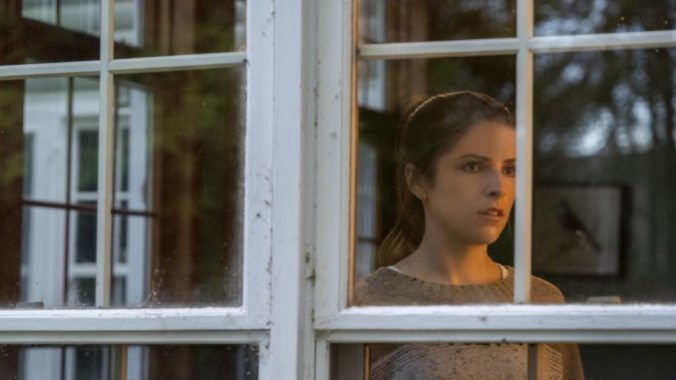Alice, Darling Is a Harrowing Yet Thin Showcase for Anna Kendrick

For a while, it was an occasional and ill-advised rite of movie-star passage: Play a woman who is stalked by a domestic abuser, then fight back with crowdpleasing vigor. Sleeping with the Enemy set a template; Enough, trying for an imitation of that hit, accidentally provided a rejoinder: Enough with stars like Julia Roberts and Jennifer Lopez using domestic violence as a vehicle for cheap empowerment and cheaper thrills. In this sense, Alice, Darling offers a corrective. It’s a movie about a toxic relationship that digs into the harrowing psychological details of mental and verbal abuse without exploiting it. It’s also a single-minded PSA picture — indie portraiture with hardly any identifying details filled in.
Maybe this is the intention of director Mary Nighy (daughter of actor Bill) and screenwriter Alanna Francis; maybe they’re illustrating the way an abusive relationship blots out the victim’s personhood. At first, the only physical damage we see done to Alice (Anna Kendrick) looks small and self-inflicted: nervous fidgets and hair-pulls, warning signs of frayed nerves. Her boyfriend Simon (Charlie Carrick), a supposedly sensitive “perfectionist” of an artist, isn’t literally laying hands on her; when you’re a perfectionist, you’re not controlling, just disappointed. Gradually, we realize that Simon’s psychological abuse essentially outsources tiny slices of violence to Alice herself.
Well, maybe it’s not that gradual. Early in the film, Nighy derives a lot of tension from the looks shared by Alice’s longtime friends Tess (Kaniehtiio Horn) and Sophie (Wunmi Mosaku) and Alice’s endless attention to her phone, lest Simon’s texts go unanswered. Tess and Sophie are clearly wary of changes they’ve seen in their friend, but it’s initially unclear how much they know about Simon and Alice’s relationship. They certainly don’t see Alice rehearsing her lie about a work trip that enables her to go on a week-long lakeside getaway celebrating Tess’s birthday; she even flips the lie to use on her friends, trying to back out of the long-promised trip for work reasons. It’s easy enough for Tess and Sophie to blame the air between them on personality conflicts and the difficulties of maintaining long-term friendships.
-

-

-

-

-

-

-

-

-

-

-

-

-

-

-

-

-

-

-

-

-

-

-

-

-

-

-

-

-

-

-

-

-

-

-

-

-

-

-

-








































